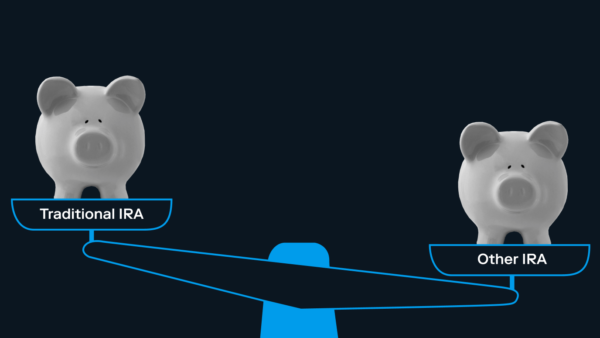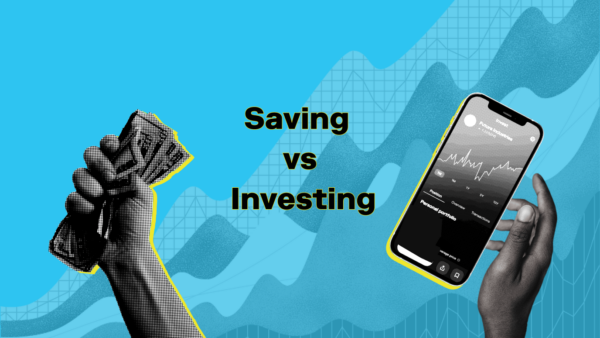Mar 28, 2022
What Is an Index in the Stock Market?
A stock market index is like a measuring stick for the stock market.

Indexes, those helpful alphabetized lists in the back of books, are great when you’re trying to find something like which recipes in a cookbook use that one ingredient you bought too much of at the grocery store. But what do they have to do with the stock market?
What is an index?
Like the index in a recipe book, an index in the stock market is a list. But instead of recipes, it lists securities. And rather than helping you find terms in a book, it helps experts measure the market’s behavior.
What is “the market”?
The phrase “the market” gets tossed around a lot, often without much context. Let’s break down what it means.
A stock market is a generic term for a physical location, like the New York Stock Exchange (NYSE), an electronic exchange like the Nasdaq, or any other mechanism to buy and sell securities, such as stocks, bonds, funds, and other investments.
The NYSE and the Nasdaq are the largest stock exchanges in the U.S., but there are many other stock exchanges in the country and all over the world.
“The market” or “the stock market,” isn’t just one thing or one place. When people talk about the market, they often mean stock markets generally or a subset of stock markets, like U.S. stock markets.
There are many stock markets, trading the stock of thousands of companies, some of which might have millions of shares. That means understanding and measuring the market can be a daunting endeavor. Stock indexes can help.
What’s an index for the stock market?
Because the market is so large and complex, it’s nearly impossible to measure the behavior of the whole thing. Indexes help solve that problem by looking at representative pieces of the market.
An index, in the stock market world, is a list of securities intended to represent the market, either as a whole or a subset of the market. Using a limited group of securities as a proxy for the market addresses the logistical challenges of measuring the entire market. And if the index is reliable, it can be used to understand the market more broadly.
Who creates indexes?
Anyone can create an index. But selecting representative securities, plus tracking, analyzing, and communicating about their behavior, is a highly specialized task. Thus, the reputation of the index provider determines how much weight the index carries with investors and experts.
These are some of the most important and referenced indexes in the financial world. If you remember any indexes, it should include these:
What kinds of indexes exist?
There are many indexes in the stock market landscape, and each has its own goal. For example, perhaps the most well-known and referenced index is the S&P 500. It’s a list of 500 large companies traded on the NYSE and Nasdaq, representing over 80% of the available market capitalization. It aims to give investors a window on the market overall.
The S&P 500 is not industry-specific. It includes companies such as 3M, Ford, and Apple. It’s also not exchange specific; for example, Apple trades on the Nasdaq and 3M trades on the NYSE. Instead, its primary requirements for inclusion are size and trade volume.
Other indexes track sectors of the market, like technology, or industries, such as clean energy, aerospace, or fossil fuels. Some indexes may even focus on companies in the cannabis industry or companies working on artificial intelligence technologies.
Putting indexes to work with Stash
So how do you know what indexes to follow? It depends on your investment strategy. You may want to pay attention to what’s in an index. In the stock market, there are a tremendous number of companies and sectors, so consider focusing on indexes that contain securities most relevant to your portfolio. That can help you understand how your investments could behave in the future. And following big-picture indexes can be a way to grasp what’s going on with financial markets in general and give you insight to support a long-term investing strategy.
*The S&P 500® (“Index”) is an index of 500 stocks seen as a leading indicator of U.S. equities and a reflection of the performance of the large cap universe, made up of companies selected by economists. The S&P 500 is a market value weighted index and one of the common benchmarks for the U.S. stock market. The Index is a product of S&P Dow Jones Indices LLC and/or its affiliates. Copyright © 2022 by S&P Dow Jones Indices LLC, a subsidiary of the McGraw-Hill Companies, Inc., and/or its affiliates. All rights reserved.
Nothing in this material should be construed as an offer, recommendation, or solicitation to buy or sell any security. All investments are subject to risk and may lose value. All product and company names are trademarks ™ or registered ® trademarks of their respective holders. Use of them does not imply any affiliation with or endorsement by them.
Stash does not endorse the illegal use of narcotics.
Related Articles

15 Largest AI Companies in 2024

The 12 Largest Cannabis Companies in 2024

What Is a Traditional IRA?

Saving vs. Investing: 2 Ways to Reach Your Financial Goals

How To Invest in the S&P 500: A Beginner’s Guide for 2024

Stock Market Holidays 2024





